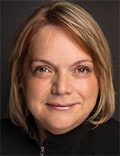In late June, the Ontario Government announced that it is consulting with the College of Nurses of Ontario, Toronto, Ontario, Canada, on expanding the scope of practice for nurse practitioners. The changes are being considered as one measure to help address the critical shortage of primary care in the province.
Ontario currently has more than 5000 nurse practitioners. While nurses' scope of practice varies across provinces, nurse practitioners can already diagnose, refer patients to specialists, and prescribe medication in Ontario and several other provinces.
The proposed changes include allowing nurse practitioners to apply a defibrillator and cardiac pacemaker therapy, perform electrocoagulation to remove skin tags and treat lesions, and sign blood testing forms for specific infectious diseases. The government is also considering making changes to end-of-life care by allowing nurse practitioners to certify death in all circumstances or any registered nurse to certify an expected death (such as in during palliative care).
"By leveraging the full extent of our training and expertise, nurse practitioners can play a crucial role in ensuring a more integrated health system. These proposed changes will lead to faster care, better outcomes, and a more efficient healthcare system," Michelle Acorn, DNP, NP, CEO of the Nurse Practitioners' Association of Ontario, told Medscape Medical News.

Expanding the Scope
The proposed measures could help provide more timely care, said Acorn, who has been a practicing nurse for more than 25 years. Throughout her career, regulatory changes have enabled nurses to apply their training better in practice.
Nurse practitioners gained the authority to prescribe controlled substances in 2017 and to order CT and MRI scans in 2022. The ability to prescribe certain medications was also expanded to all registered nurses in 2023. Yet, "nurse practitioners still represent an untapped resource right now," Acorn added.
Now that nurses can perform these key tasks, the new changes "are just a few gaps that need to be closed right now to ensure that they're fully optimized and integrating into the Ontario healthcare system," said Acorn. Beyond the proposed changes, Acorn believes that allowing nurses to certify mental health forms is particularly important. "We absolutely have the knowledge, skills, and judgment to do this."
Some doctors, however, are hesitant about expanding nurses' scope of practice, without properly ensuring patient safety. "Doctors value the vital contribution that other healthcare professionals bring to the team, but we need a plan in place to ensure that there is an integrated system of primary care. If there is no integration plan or quality framework put in place when expanding the scope of healthcare professionals, it will be detrimental for patient safety and for the future of family medicine," the Ontario Medical Association (OMA) told Medscape Medical News in a statement.
"Our goal is to ensure that patients get the care they need in a system that is integrated and ensures they do not fall through the cracks. That happens when there is a strong family medicine foundation to the primary care and larger healthcare systems," the OMA continued.
Nurse-Led Clinics
Allowing nurses to certify death could be particularly beneficial, according to Tammy O'Rourke, NP, PhD, assistant professor at Athabasca University, Athabasca, Alberta, Canada, who supports the proposed changes. Currently, physicians are brought in to sign the death certificate, which can be distressing to families during their loss. "There's no legal requirement that death be pronounced by a physician, only that the paperwork be done by a physician," said O'Rourke. "And they bill the Ontario Health Insurance Plan about $70 for that."

While nurse practitioners now perform many of the same services as physicians, they cannot bill in the same fee-for-service model and are typically paid less than doctors, O'Rourke noted. This discrepancy has caused some nurses to begin private clinics where patients pay out of pocket for primary care services — a practice that has generated controversy. O'Rourke worked in one nurse-led private clinic in Belleville, Ontario, from 2010 to 2014. Alternative reimbursement models are the best option, she said, but all providers should be paid the same for providing the same services.
Whether private clinics are a viable solution, changing the remuneration system may help improve access to care, Patrick O'Byrne, RN-EC, PhD, a professor of nursing at the University of Ottawa, Ottawa, Ontario, Canada, told Medscape Medical News. O'Byrne does not support private clinics as a system-level intervention, though he does not criticize the nurses who work in them. But he does believe that nurse practitioners would benefit from direct access to fee schedules and billing.
'Low-Hanging Fruit'
Regarding the proposed changes to scope of practice, "they took some very easy, low-hanging fruit," said O'Byrne. Although the changes will be important for a small number of people, he believes that they are not "a rate-limiting step" in Ontarians' access to care.
"Any movement is good movement forward, but I don't think it's going to have a huge, profound effect." Instead, he believes bureaucratic barriers such as billing regulation must be changed to reduce the bottleneck in primary care.
"The longer the bottleneck persists, the more the public is going to say, 'Give us the nurse practitioners. We want access to good, quality care'," said O’Byrne. "It becomes a bit of a turf war when you're in the health professions, between medicine and nursing, but the patients don't care about a turf war. They want access."
Gwendolyn Rak is a health reporter for Medscape Medical News based in Philadelphia.

